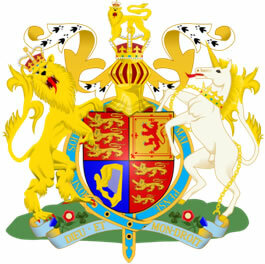Located in Western Europe, the United Kingdom is made up of the island nations of Great Britain (England, Scotland and Wales), the province of Northern Ireland (located on the Isle of Ireland), the Isle of Man and the Channel Islands. Its territory is bordered by the Atlantic Ocean, the North Sea and the Irish Sea. England is the most important nation, as it is the most inhabited and has great geopolitical and economic representation on the world stage.
The UK had one of the greatest empires in all of history, colonizing countries on five continents. Currently, the nation maintains political relations with its former colonies through the British Commonwealth (a bloc formed by the United Kingdom and its former colonies).
Cradle of the Industrial Revolution, the United Kingdom started its activities in this sector of the economy with the production of steel and textiles. Currently, the country stands out for its great diversity in industrial activities, housing a modern industrial park with car, airplane and hydrofoil builders. Other important aspects are the financial, commercial, port and tourism centers, in addition to the textile, chemical and petrochemical industries.
The third largest economy in the European Union, the UK did not replace the pound sterling with the euro (the official currency of the economic bloc). The country has one of the largest economies on the planet, and is even a member of the select Group of the Eight (G-8), which is made up of the seven richest and most industrialized nations in the world, in addition to the Russia.
The country adopts the parliamentary monarchy as the system of government, with Queen Elizabeth II as head of state, and a prime minister. In 2007, Gordon Brown assumed that position.

United Kingdom Coat of Arms
UK data:
Territorial extension: 244,100 km².
Location: Europe.
Capital: London.
Climate: Oceanic temperate.
Government: Parliamentary monarchy.
Administrative division: England – 9 regions subdivided into counties; Scotland – 32 areas and 3 zones of island authority; Wales – 9 counties; Northern Ireland – 6 counties.
Languages: English (official), Welsh (Wales), Gaelic (Northern Ireland and Scotland).
Religions: Christianity 81.6% (Anglicans 42.5%, no affiliation 16.2%, others 22.9%), no religion 12.3%, another 5%, atheism 1.4%.
Population: 61,565,422 inhabitants. (Men: 30,202,183; Women: 31,363,239).
Composition: English 82%, Scottish 10%, Irish 2%, Welsh 2%, other 4%.
Demographic density: 252.2 inhab/km².
Average annual population growth rate: 0.5%.
Population residing in urban areas: 90.05%.
Population residing in rural areas: 9.95%.
Undernourished population: less than 5%.
Life expectancy at birth: 79.2 years.
Households with access to drinking water: 100%.
Human Development Index (HDI): 0.849 (very high).
Currency: British Pound.
Gross Domestic Product (GDP): 2.6 trillion dollars.
GDP per capita: $45,549.
External relations: World Bank, Commonwealth, IMF, G-8, OECD, WTO, UN, NATO, EU.
By Wagner de Cerqueira and Francisco
Graduated in Geography
Brazil School Team
UK - countries - geography - Brazil School
Source: Brazil School - https://brasilescola.uol.com.br/geografia/dados-reino-unido.htm

